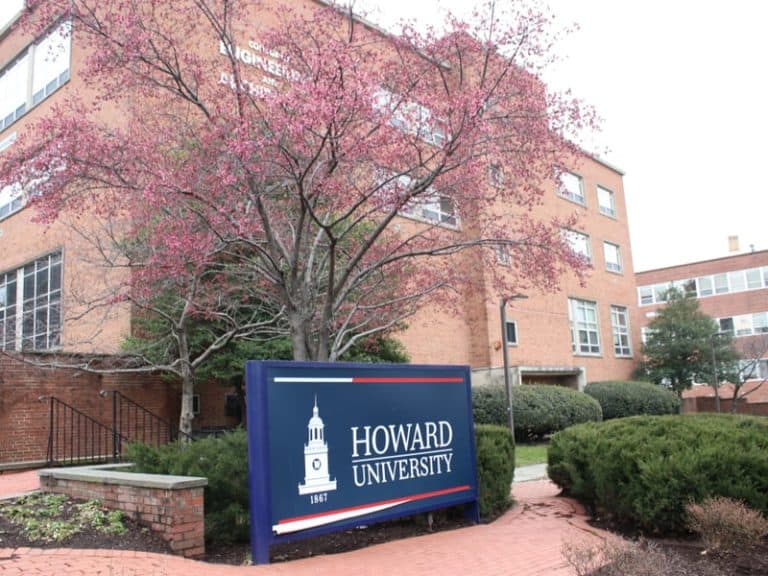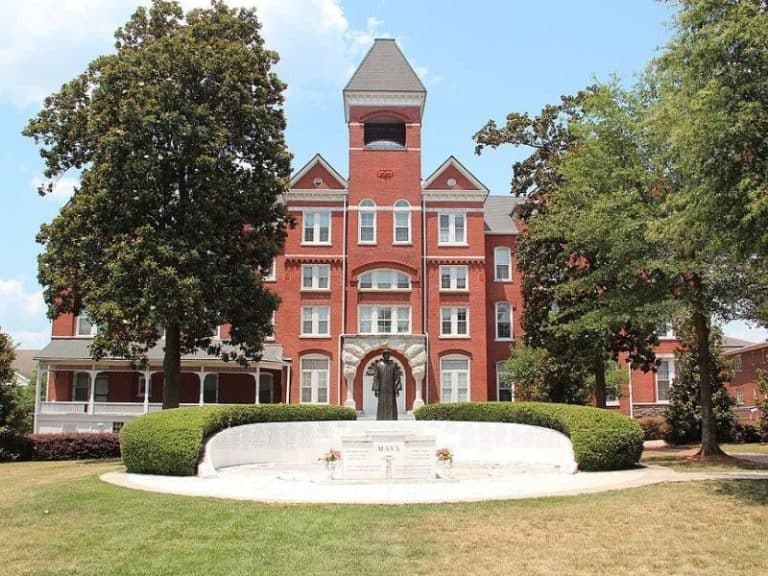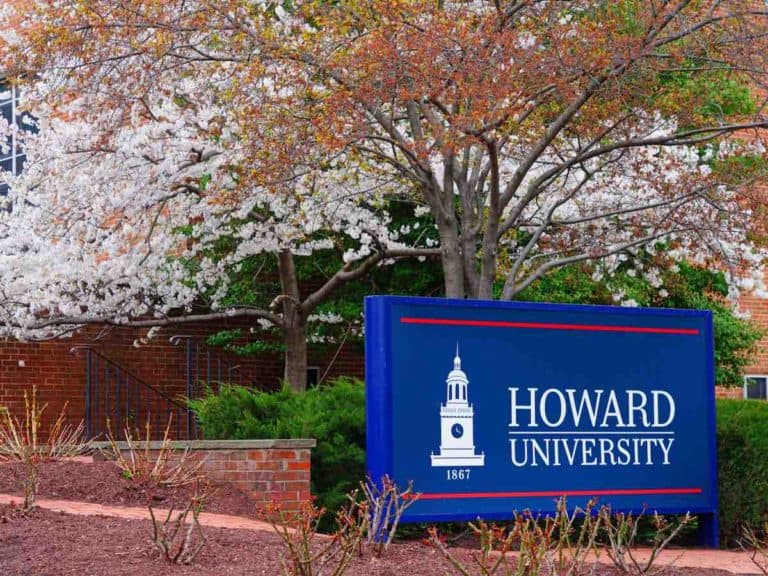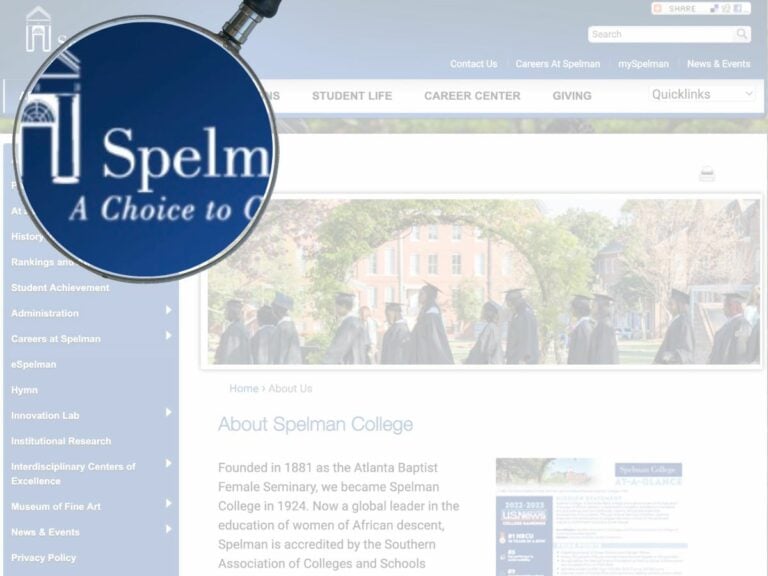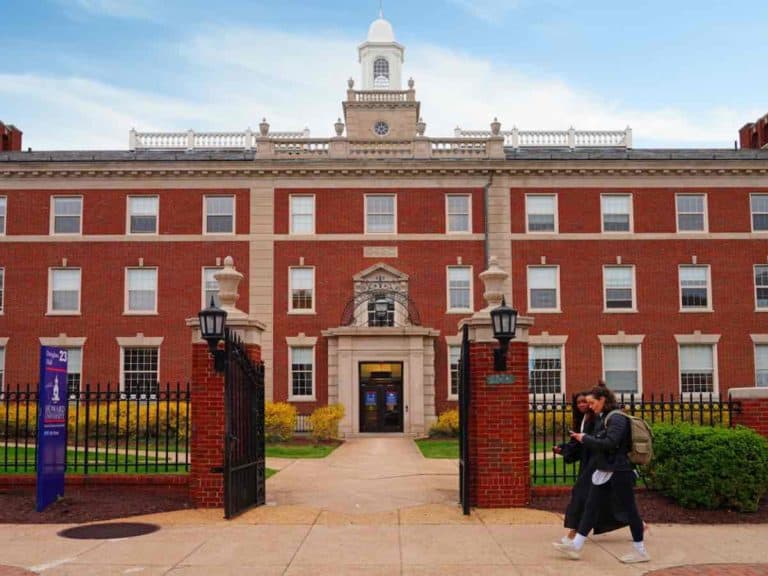Is Hampton University the Best HBCU?
Degree-seeking students typically spend four to six years in college.
Attending a school where you feel like you belong and are a part of the majority can help make your academic and social experience even more rewarding and memorable.
There are 100+ historically black colleges and universities (HBCUs) across the United States.
Hampton University, which is in Hampton, Virginia, is an HBCU. It was founded after the American Civil War to educate former slaves.
So, in other words, it has a rich history.
It’s a moderately selective school with an acceptance rate of 45%.
Besides being a competitive, predominantly black institution, there are other things Hampton is known for, such as:
- Imposing a rigorous dress code
- Being a party school
- Having a sailing team
- Boasting a high retention rate
- Offering small class sizes
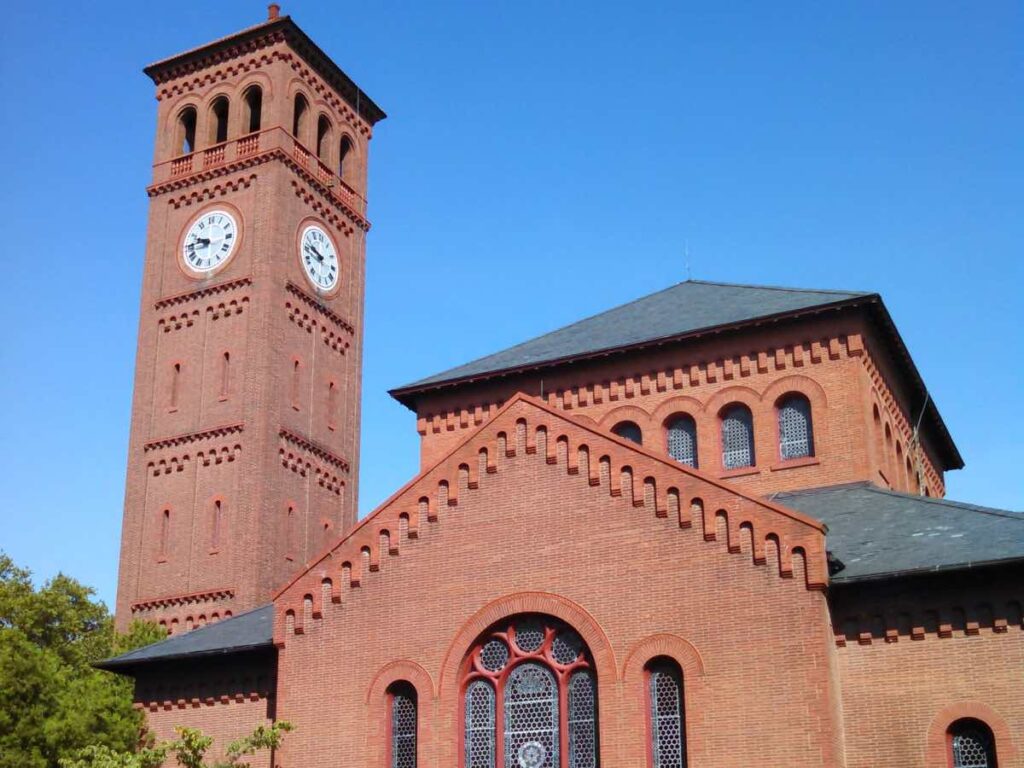
A Party School Where Everyone Has to Dress Appropriately
Originally called Hampton Agricultural and Industrial School, HU is different as it’s a source of great pride for the African American community and has a stringent code of conduct for its students.
It also has an above-average sports, social, and Greek life, which matters to some students.
The Vast Majority of Students are African Americans
Hampton University is an HBCU.
As such, it isn’t surprising that the majority of students are black — up to 97% of the campus population.
Meanwhile, white students make up just a little over 1% of the entire population.
Let’s take a look at the breakdown of the 3,649 students at Hampton by race:
- Black: 3,532
- White: 42
- Hispanic: 25
- Unknown: 23
- Asian: 19
- American Indian/Alaskan Native: 6
- Pacific Islander: 3
There are more female students than male students at Hampton — 67.5% vs. 32.5%.
International students are welcome to attend Hampton, the institution says. Based on sources other than the HBCU, there are 60+ international students on its campus, most of whom are undergraduates.
Let’s address an obvious issue by answering the following question:
Can White Students Go to Hampton?
White students can definitely go to Hampton University! Some white students are working on their degrees there. However, they are a part of the minority instead of the majority.
Whether HU or a different HBCU, a white college-bound teen can apply.
Students of any race or ethnic background can apply to an HBCU.
However, they should meet the minimum requirements, which can vary from school to school, HBCU or otherwise.
Hampton does not participate in the Common Data Set (CDS). Due to this, it’s unknown if it considers race or ethnicity in the review process.
It’s for sure, however, that applicants must indicate their race when applying to Hampton, particularly when filling out the Personal Data section.
Dress Right to Stay Right Where You Are
Hampton U has a strict dress code policy.
Unlike at other schools, students cannot just wear anything they like. Popular garments such as tube tops, halter tops, hoodies, and even do-rags and caps are not welcome on campus.
Show up to class wearing unacceptable clothes, and the school might take your ID.
It might also kick you out if you wear the wrong attire for the second or third time.
The dress code at the school is according to the theory that learning to select attire appropriate to specific occasions and activities is a factor in the educational process. It also helps prepare students for their respective industries.
Neat, modest, casual, or dressy attire.
That’s what’s appropriate in classrooms, cafeterias, and university offices. The same applies to recreational activities and social gatherings like galas, balls, and student union meetings.
Wearing business attire during interviews and formal events is the way to go.
With a dress code policy in place, you must wear clothes that allow you to abide by the rules rather than show your personality and sense of style.
However, with careful planning, you can also prioritize your looks and comfort.
A Party School With Many Annual Traditions
HU is a party school, alright, but not one of the biggest in the US.
Niche ranks it #12 in Top Party Schools in Virginia (out of 39 ranked schools). The popular college ranking site also ranks it #260 in Top Party Schools in America (out of 1,512 ranked schools).
From Monday to Friday, campus life is mostly about academics and extracurricular activities, with students focused on hitting the books and participating in club activities.
On weekends, students can attend on- and off-campus parties.
Those who are not hardcore partygoers can choose to attend what’s referred to as kickbacks. Simply put, a kickback is a more low-key and reserved version of a party.
Hampton also has many traditions celebrated annually. Some examples are Christmas Tree Lighting, Induction Ceremony, Battle of the States, and Homecoming.
That said, Hampton U is fantastic for extroverts and introverts. The same is true for those in between.
As with Greek life, since Hampton does not have a CDS, I failed to determine how many of its students are members of fraternities and sororities — they exist on campus.
I am sure, though, that there are 10 Greek societies at Hampton in total.
Niche also ranks it #12 in Best Greek Life Colleges in Virginia (out of 21 ranked schools).
Join a Registered Club (Or Register One)
Students attending Hampton University can choose from over 55 clubs and organizations.
These groups provide opportunities for students to pursue their interests, learn new things, meet people, and create memorable experiences.
The following are some examples of student clubs and organizations at Hampton:
- American Marketing Association
- Brother to Brother
- Calliope Literary and Film Society
- Grand Pre-Alumni Council
- Kinesiology Club
- Math Club
- Muslim Student Association
- National Society of Black Engineers
- Political Science Club
- Pretty Girls Sweat – Hampton University Chapter
- Sister II Sister
- Terpsichorean Dance Company
- Visual Poets Society
Not happy with any of the options?
Hampton encourages you to start one with a few of your friends.
The Pirates are Innovators in Sports
Hampton is a standout sports-wise in a couple of ways.
First, it’s the only HBCU in the country with a sailing team.
Second, it’s the first and only HBCU to participate in a Division I men’s lacrosse, which happened in 2016.
Hampton was once a part of the Mid-Eastern Athletic Conference (MEAC) and the Big South Conference.
However, it left both and participated in the National Collegiate Athletic Association (NCAA) and the Coastal Athletic Association (CAA).
Hampton Pirates and Lady Pirates are the names of its varsity teams.
Speaking of which, there are 19 varsity teams around. Approximately 450 students participate in varsity sports — 61% are males and 39% are females.
Here are some of the most popular sports at Hampton:
- Basketball
- Cross country
- Football
- Lacrosse
- Tennis
- Track and field
Do you consider yourself a student-athlete?
Or are you more of a sports fan?
Either way, you may find HU good enough to whet your athletic appetite. After all, Niche ranks it #19 in Best Colleges for Student Athletes in Virginia and #306 in Best College Athletics in America.
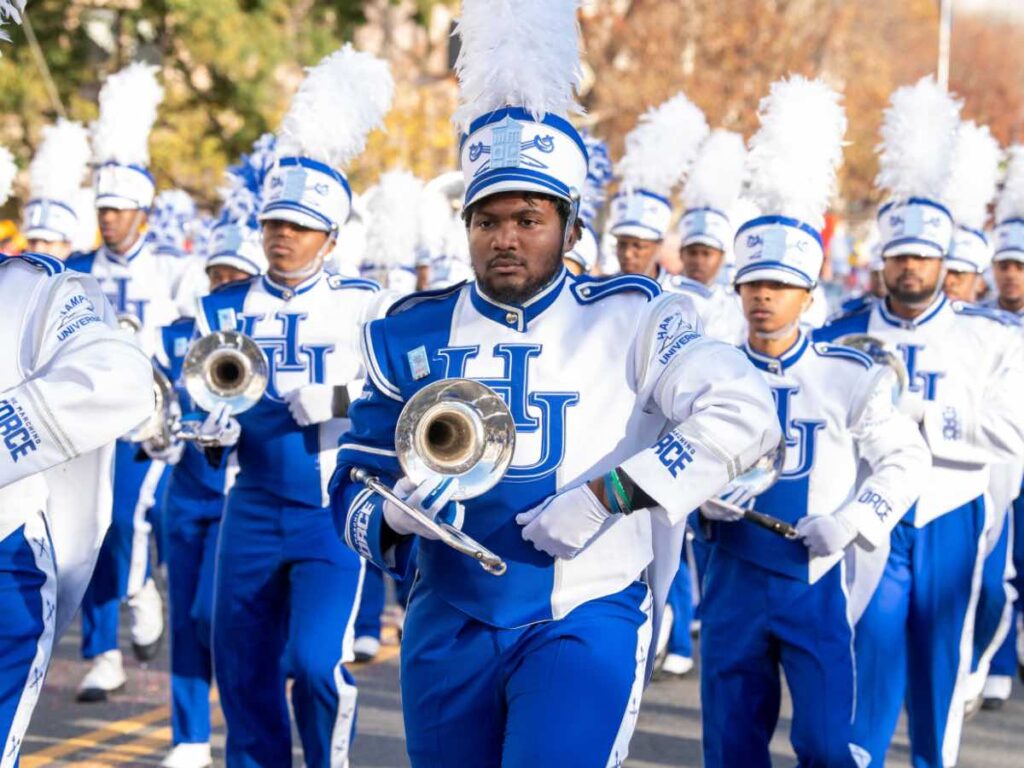
A Beautiful Campus That’s Great for Researching
The 3,640+ Hampton students share the beautiful 314-acre campus.
They also share it with 118 buildings, including the Academy Building and Virginia-Cleveland Hall.
Hampton University has a Carnegie R2 designation. It means that it has high research activity.
As such, its campus is home to 16 research centers.
One of those is the Hampton University Proton Therapy Institute, the largest facility of its kind worldwide.
Hampton attracts a lot of students interested in research-intensive courses.
Doing research should not be a cause for concern for undergraduates. That’s because the campus has four libraries, the William R. & Norma B. Harvey Library being the main one.
Some of the most popular hangouts on the HU campus include the following:
- Armstrong Stadium
- Convocation Center
- Hampton University Museum
- Ogden Hall
- Student Center
- William R. & Norma B. Harvey Library
Residence Halls for Males and Females (And a Co-Ed One)
A freshman at Hampton U is required to live on campus. After the initial year, they can choose between staying in their dorms or living elsewhere.
Someone whose permanent residence is within a 10-mile radius of the campus is exempt from this rule.
Male and female students live in different residence halls.
It’s worth pointing out that Hampton has a co-ed housing option: the Dubois Hall. It’s named after Dr. W. E. B. Dubois, the first Black student to receive a doctorate from Harvard University.
However, the Dubois Hall, which has seven floors and can accommodate 202 individuals, is reserved for upperclassmen students. Also, they must have a minimum GPA of 3.0 to reside in it.
There are more female students at HU than males.
As such, it isn’t surprising that there are more residence halls for freshmen and other undergraduate females.
Some residence halls exclusive to female students include:
- Holly Tree Inn
- Kelsey Hall
- Kennedy Hall
- McGrew Towers
- Moton Hall
- Stone Manor
- White Hall
Maintaining Student Health and Safety
Hampton students have access to the Student Health Center. It’s an outpatient primary care office that provides several services to help maintain the health and wellness of students.
The following are some of the services it provides:
- Health education
- Health maintenance
- Wellness screenings
- Laboratory services
- Treatment for episodic illnesses
At the Student Health Center, board-certified medical professionals provide care.
Meanwhile, the Hampton University Police Department (HUPD) is around to keep everyone out of harm’s way. It is a full-fledged law enforcement and security service organization unique to an academic setting.
The HUPD consists of 43 authorized positions that include the following:
- State-certified police officers
- Security officers
- Telecommunication personnel
- Administrative support personnel
Top-Notch Academics and Learning Opportunities
Hampton U offers 130+ degree programs. There are also more than 70 majors around, some of the most popular of which are business and hard sciences.
Enriching a student’s academic experience are study-abroad and internship programs.
Over 70 Academic Majors Available
Undergraduate students attending Hampton can choose from 73 majors.
Some of the most popular majors are the following:
- Biology
- Business
- Management
- Liberal Arts and Humanities
- Psychology
- Kinesiology and Exercise Science
- Journalism
- Communications
- Marketing
- Architecture
- Political Science and Government
Students can wait until the end of their sophomore year to declare a major.
However, it’s worth noting that having an idea of one’s intended major early on is a must. That’s because Hampton requires students to take courses vital to the majors they intend to declare.
A Curriculum Guide is available during the registration to help them identify those.
Some HU Majors Allow You to Make More Money
Some majors at Hampton University allow graduates to make more money.
STEM and also health- and business-related majors are some of the highest-paid. Many of them, coincidentally, are also some of the highest-ranked, including psychology.
The following are some of the highest-paid majors offered by Hampton:
| Major | Yearly Earnings |
|---|---|
| Registered Nursing | $57,200 |
| Nursing Administration | $57,200 |
| Business Administration | $38,200 |
| Management | $38,200 |
| Biology | $29,400 |
| Psychology | $26,400 |
| Journalism | $25,700 |
| Advertising | $20,800 |
| Public Relations | $20,800 |
| Health and Physical Education | $20,100 |
I obtained the figures above from College Simply.
Based on a Niche poll, around 95% of individuals who went to Hampton have jobs two years after graduation. Nearly three-fourths agree that the school’s career center was pivotal in finding jobs.
Be an Intern to Earn, Network, and Gain Experience
Most academic programs at Hampton University make internships a part of the curriculum.
It is essential because of two things:
- It provides students with real-world professional experience
- It allows students to earn credit for the completion of their degrees
All internship opportunities are related to the course of study of the student.
As such, internships enable the integration of theoretical knowledge learned in the classroom with practical skills. This results in personal and professional growth students need to prepare for their respective careers.
Being an intern also allows you to earn money and network with professionals in your chosen area or field. It can help boost your confidence, too, and even make your career path more defined.
Contact the Career Counseling and Planning Center to learn more about Hampton’s internship programs.
Want a Global Career? Apply to Study Abroad!
Hampton University is a wonderful school for anyone who wants to study abroad!
Its study-abroad programs offer students the opportunity to experience what it’s like to study outside of the United States, which can help prepare them for a global career.
Some of the countries that Hampton students can travel to include:
- Costa Rica
- Dominican Republic
- Jamaica
- London
Those interested in studying abroad must first obtain permission from their respective chair or dean. Then, they may apply for the program through the Director of International Programs.
Some prerequisites, as expected, must be met by interested students.
For instance, those who like to study abroad during the fall and/or spring semesters must pre-register for not less than 12 credits. That’s equivalent to a minimum of 6 credits for those who like to study abroad in the summer.
High Retention Rate and Above-Average Graduation Rate
Most first-year students at Hampton University return the following year to continue their studies.
Hampton has a retention rate of 81%. Given that the average retention rate for HBCUs is only 64%, it’s clear that Hampton has a much higher retention rate among similar schools.
Meanwhile, its graduation rate is 57%.
It’s worth pointing out that the average graduation rate for HBCUs is about 35% only. On the other hand, 68% is the average graduation rate for private non-profit colleges in the US.
The Majority of Classes are Small
The majority of classes at Hampton are small. Up to 53% of classes have fewer than 20 students.
Meanwhile, some classes can be pretty big, too. For instance, around 42% of classes have 20 to less than 50 students. Almost 5% of classes can have as many as 50 or more students!
For every 11 students going to Hampton, one teacher is available.
A student-to-faculty ratio of 11:1 is quite good. The recommended student-to-faculty ratio is 16:1 for American colleges and universities. However, a ratio of 14:1 is typically high already.
Small class sizes, generally speaking, allow for a better learning environment. Similarly, it increases social engagement with students working on the same degree.
Other than students, teachers also benefit from small class sizes.
Instructing a few students per class lightens the workload of college teachers. As a result, they can focus more on the quality of their teaching and grading rather than the quantity.
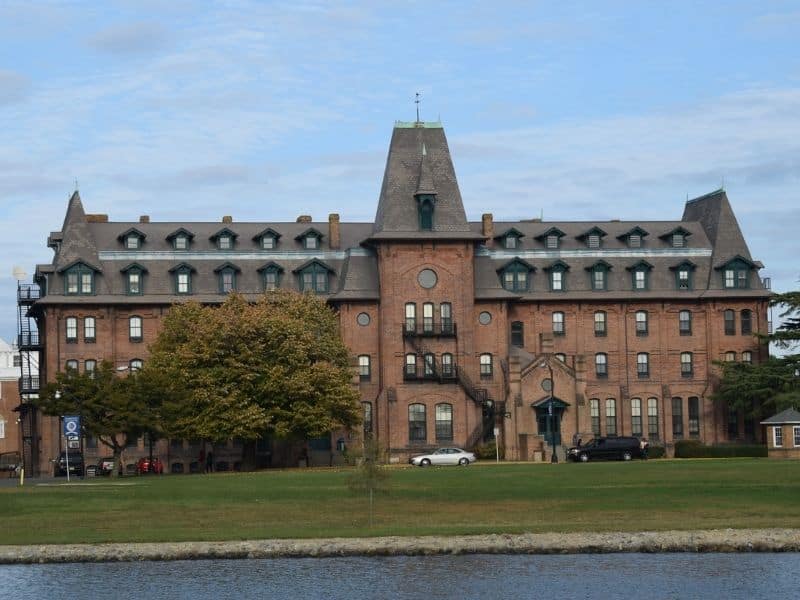
Who’s Who: HU’s Most Notable Alumni
Now, here are some well-known Hampton alumni, some of whom you may be familiar with:
Booker T. Washington
An educator and advisor to many US presidents, he is considered one of the most notable graduates of Hampton. He graduated from the institution in 1875 at the age of 16.
Alberta Williams King
An important role player in the Ebenezer Baptist Church affairs, she was the mother of Martin Luther King Jr. In 1924, she graduated from Hampton University with a teaching certificate.
Mary Jackson
A black aerospace engineer at the National Advisory Committee for Aeronautics (NACA) and later the National Aeronautics and Space Administration (NASA), her life was told in the movie, Hidden Figures.
Mychal Denzel Smith
A TV commentator and author, he wrote the New York Times bestselling book Invisible Man, Got the Whole World Watching. While attending Hampton, he served as the editor-in-chief of The Script, the school newspaper.
Douglas Palmer
On July 1, 1990, Douglas Palmer took office as mayor of Trenton, New Jersey. He was the first-ever African-American mayor of the capital city of The Garden State.
Sylvia Trent-Adams
The US surgeon general in 2017, she was named to the board of directors for American Mobile Nurses (AMN) healthcare in 2020. She got her undergraduate Nursing degree from Hampton and her master of science and doctorate in Nursing elsewhere.
Charles Phillips
An African-American business exec in the tech industry, he is the CEO of Infor Global Solutions. It is the largest privately-owned software and the third-largest provider of enterprise applications and services worldwide.
St. Clair Drake
Together with Horace R. Clayton, he wrote Black Metropolis: A Study of Negro Life in a Northern City, which was a significant study of race and urban life. He also played for Hampton U’s soccer team.
Disclaimer: The views and opinions expressed in this article are those of the authors and do not necessarily represent those of the College Reality Check.
